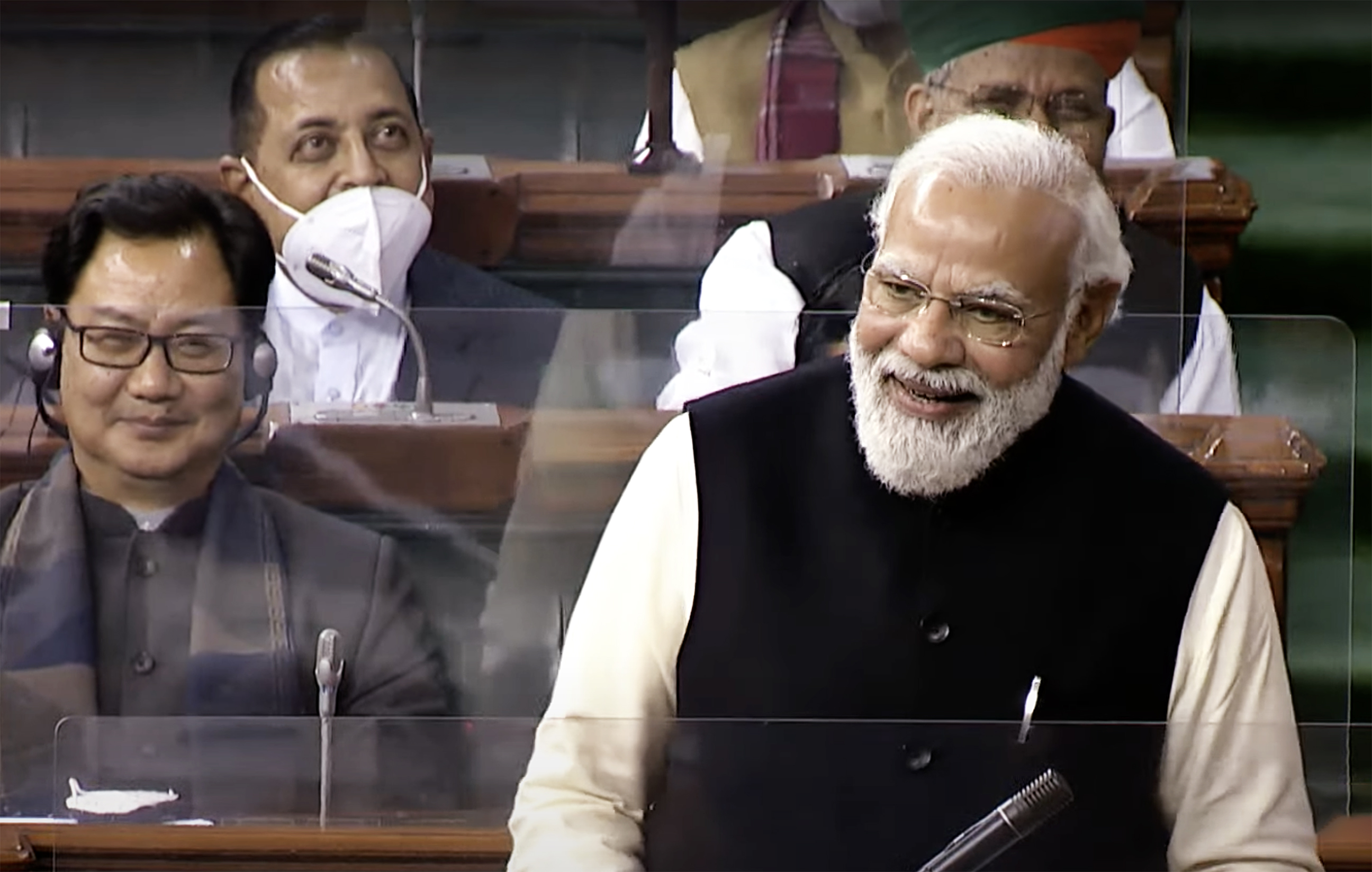From the start of 2013, in the minds of BJP cadre, not to mention amongst large swathes of the citizenry, Prime Minister Narendra Damodardas Modi has been regarded as the natural leader of not just his party but the country. Memory is still fresh of Narendra Modi’s record of success in transforming Gujarat. This took place in a manner that became common talk within other parts of India. There was no state government scheme in Gujarat during his time (and afterwards) that excluded the minorities. Unlike in UP before Yogi Adityanath took over, the people of Gujarat, a state where communal riots had become a commonplace, experienced 12 years during which there was not a single inter-religious riot. Interestingly, in Bengal the victory of the TMC in the Assembly polls was followed by violence against a section of society. In UP, after the BJP was voted back to power, there was a complete absence of any such violence. As Prime Minister, from the start of his tenure, Modi has focused on prosperity for all. Millions of voters in UP who derived benefit from the many Central schemes implemented in the state voted for the Samajwadi Party under Akhilesh Yadav. Long before the election campaign began, some voters had made clear their opposition to the Yogi Adityanath government. None of that stopped every benefit enjoyed by pro-BJP voters from being extended to them freely and enthusiastically by the state government. Much has been written about the demolition of the Babri Masjid in 1992, and continues to figure in commentaries in India and abroad to this day. Much fewer has been any mention of the numerous houses of worship belonging to the majority community that were demolished by Modi in Gujarat during his term in the post of CM, or by Adityanath during the years he has held the office of CM, UP. Not far from the newly reconstructed Ram temple, a magnificent masjid is coming up in place of the dilapidated structure that was destroyed by hundreds of individuals at Ayodhya three decades back. Once the holy sites of Kashi and Mathura are restored to their glory before they were vandalised by Aurangzeb, the wound that exists in the Hindu psyche by the partition of India on the basis of the Two-Nation theory will heal completely. Ignoring the physical and psychic pain of Partition in the manner that Nehru sought to do has only built up a head of steam that became apparent in the 1990s. This time around, hopefully such a transformation would take place after securing the consent of the Muslim community in India. A step in that direction would be to ignore fringe elements within the majority community who talk of re-taking all the sites of temples that were destroyed by the Mughals. Historical wrongs cannot be corrected by rolling back history, something that the Congress discovered after the Sonia Gandhi-engineered split in that party in 1996. Such a stance by the Hindu fringe would assist GHQ Rawalpindi in its efforts to prevent the Muslim community in India from accepting the logic behind the three holy sites of the Hindu faith being returned to their pre-Aurangzeb glory, together with new and magnificent masjids built close by to replace the structures built during Aurangzeb’s time in Kashi and Mathura. Such a stance is as self-defeating as was the action of Nathuram Godse in assassinating Mahatma Gandhi. That single act has been used over more than six decades to entrench “Nehruvian secularism” in India. This is a construct where the majority community is treated in the same discriminatory and unequal way that minority communities are in some countries. If some friends in that party are correct, these days the Congress asks the applicant to reveal such personal details as religion and “caste” in its application form. Genuine secularism occurs when the faith of a citizen is of no consequence outside his or her personal life, and certainly ought to pay no role in anyone’s political or administrative activities. Among the key requirements of any national security strategy is equality of treatment of all communities. The last remnant of the Two-Nation theory that was used by Jinnah and Churchill to partition India was Article 370 in Jammu & Kashmir, and this was removed a couple of years ago, finally. In the case of the BJP, it is a matter of concern that the Kerala unit of the party is opposing the construction of a new and fast railway system that would transport goods and passengers not merely across the state but to different parts of the country. In a state where hundreds of thousands working in the Middle East may soon get unemployed as a consequence of geopolitical shocks there, such opposition goes against the spirit of Sabka Sath Sabka Vikas Sabka Viswas that is the guiding principle of PM Modi. The Kerala unit of the BJP has some outstanding young leaders such as Union Minister Muralidharan, and they need to step in and prevent their party from joining hands with the Congress in an effort at blocking the K-Rail Silverline project. In case the compensation paid to those losing land is low, the party should agitate for an increase without throwing the baby out with the bathwater. The young in Kerala need more such projects. MDN

